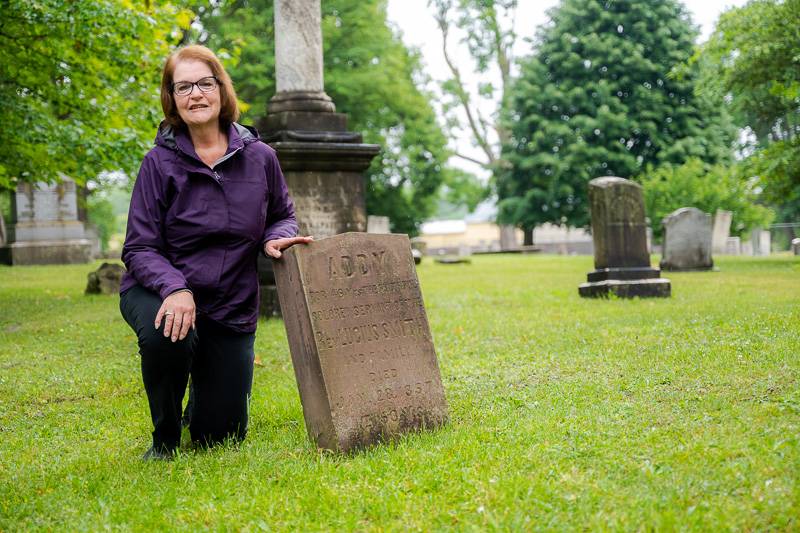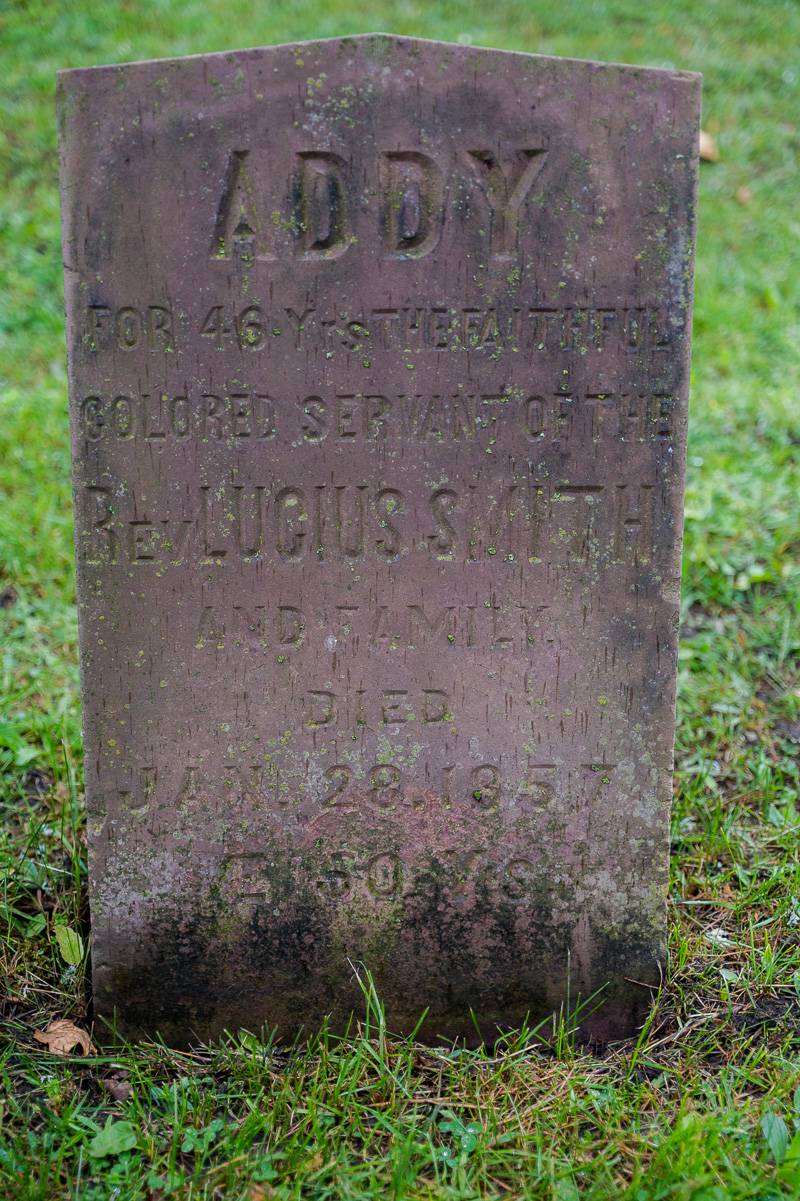
When the Rev. Shiela Campbell McCullough, pastor of Bethany Presbyterian Church, learned of Batavia’s cultural history, she was surprised, to say the least, about one particular person who lived and died here.
Her name was Adeline “Addy” Barbara, as listed in the 1850 census. Her gravestone, weathered and worn, bears the etching of her burden from age 4 until she died at 50: “faithful colored servant.”
“I never thought about it here in Batavia until (City Historian) Larry Barnes unearthed it, and then he published his findings (in the book “History by the Hearth”). And then it was not until Mike Stuart … brought it to my attention I had no knowledge of this, and when Mike met me at the cemetery to show me the marker, it was overwhelming. I was so full of pain,” McCullough said during an interview with The Batavian. “I’m a grandmother, and at that time, my granddaughter was four years old. And I just could not even imagine someone treating her like that. And the mere thought that just a four-year-old child was snatched from her mother, and I put my daughter in the place of her mother. I mean, in my mind, it was just, that was painful. And the only thing I could do is to lay some flowers at her marker.”
Turns out that’s not the only thing she could do. McCullough and members of Batavia First Presbyterian Church, including the Rev. Roula Alkhouri and her husband Mike Stuart, and Batavia Cemetery Association will not only remember Addy and celebrate her life during Juneteenth’s Freedom Day at 10 a.m. Monday, but will also reclaim the narrative from those words so horribly skewed on the gravestone, McCullough said.
A faithful servant? “That’s not the truth,” she said.
“Honoring Addy is paramount in certain form and fashion, but we’ll be pointing out the truth, and being her voice: no, no, no, I didn’t have a voice in the matter. I was a slave,” McCullough said. “It’s a celebration of her life, but more than just her life, her humanity. To be a slave, especially in America, meant you were sub-human, which meant the animals had more value than you.”
McCullough thinks about that fragile child and all of her “little girlness.” She would have been attending preschool in present day America instead of doing chores and being stripped of her family, her rights, choices, and future.
Another action that organizers will take in her name and spirit is to restore the marker, not to destroy any of the history, the reverend said, but to enhance it and, again, “reclaim the narrative” with scripture affirming Addy’s spiritual worth in the eyes of God versus how she was undervalued by her human owners.
The graveside service to honor Addy is to begin at 10 a.m. Monday at the Historic Batavia Cemetery, 65 Harvester Ave., Batavia.

She lived from 1807 until she died Jan. 28, 1857, according to the marker, Batavia Cemetery Association President Sharon Burkel said, and lived with the family of Episcopal priest Rev. Lucius Smith.
“She’s listed right in the census with them in 1850 … We don't know a whole lot about her,” Burkel said. “We had thought for many years, because that section of the cemetery is where the first plots were laid out in 1823, that was the part where a lot of the people buried in there were from St. James Church and the Presbyterian Church. They owned the cemetery initially.”
This service is a reminder of the importance of recognizing and confronting the legacy of slavery in our society, organizers said. All are welcome to attend and pay their respects.
It’s an important part of Batavia’s history, and people might want to attend to acknowledge our shared history, McCullough said.
“To acknowledge that we have a responsibility to make this world a better place for the generations that come behind us to begin to see our shared history, as also the type of legacy that we're leaving behind,” she said. “At least I do, I want to leave my granddaughter with the truth of who she is, where she comes from, which includes being an American in this country. I want her to know all the ins and outs, the good and the bad. I want her to know.”
